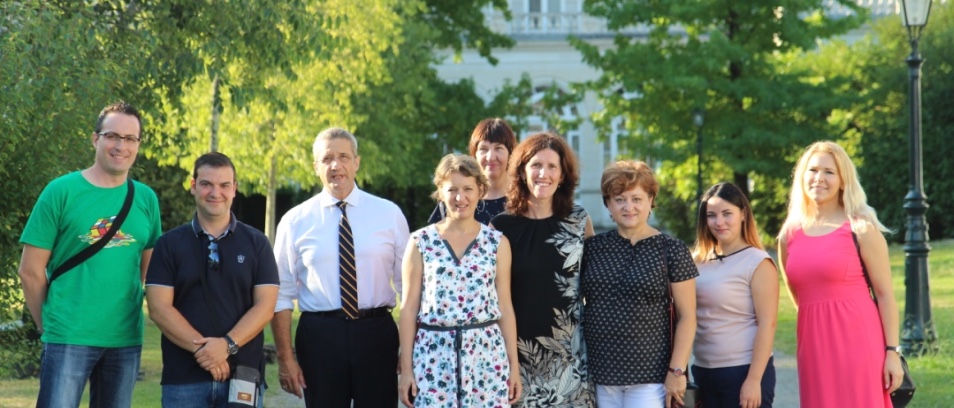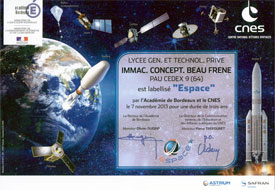Des directrices et directeurs d’instituts européens de formation des professeurs reçus à l’Immaculée Conception.
Dans le cadre d'un projet européen, Share Train, Mme Frohlich, de l'Institut de formation de l'enseignement catholique de Bordeaux, est venue avec des collègues d'instituts publics de formation des maîtres de plusieurs pays européens (Pologne, Lituanie, Espagne), afin de partager nos visions de l'école et projets ou "innovations" pédagogiques.

Voici le discours d'accueil dans lequel M Espeso a exposé la vision de l'école portée à l'Immaculée Conception:
" Good morning Colleagues
The last time I tried to speak English was probably at a student party ! So may I apologise beforehand for inflicting my disastrous accent on you, but I wished to speak to you directly. I must confess, I would have never been able to say that much without Mrs Arical's help.I would like to express my deep and sincere thanks to her for, once again, her help and patience with the mediocre student that I am.
The innovation here begins with the recognition that school is not about the future but always about the past, a past which is not an enemy of the future, a past which does not exclude adapting to the modern world. It is not a problem of means, which is at stake, even if means must be reaffected, or structure, even if some structures must be reformed and maybe not even a problem of methods or practices, despite our resistance to those proposed by Mrs Valaud Belkacem. What is at stake, is a problem of goals and meanings, the question we must answer is, what use is school ?
We are losing the meaning of what school is, when we see it as a place of utilitarian preparation for professional life, having to be up to date, or a place of social reproduction of inequalities we have learnt to no longer believe in school whether we be students or teachers.
The transmission of classical culture, the great writers, to me seems essential ; I did not choose this career as a teacher to become an accompanying adult of young people. I am thrilled when I see a pupil using authors he or she has discovered, to think - sometimes used against themselves and even sometimes against me, against what I have tried to transmit. In those such moments I see new liberty flowering. Studying, teaching the great writers does not format a person but stimulates freedom.
Everything I have just said to you, does not prevent me from working with Mrs Galy and the teachers of the innovation committee, teachers using the flipped classroom technique, using Information and Communication Technology for Education, indeed teachers I could often be in conflict with. We have got past the quarrel of the ancients and the moderns. We do not allow any screens in the primary and lower or middle schools and if the high school students and teachers each have an iPad, it is to transmit more in a pedagogical way which remains traditional and face to face using methods polished by time and teachers who are still the mediators of knowledge, not giving in to the immediacy of digital technology. Notwithstanding, teachers like Mrs Galy and many of her colleagues in the technical college carry out remarkable work, helping forwards young people often crushed by school. Perhaps we innovate in that we prove we can work together, grow richer through our differences and come together in the answer to the question : what use is school ? As we are motivated by the same passion for young people and the job we do."
Christian Espeso.
